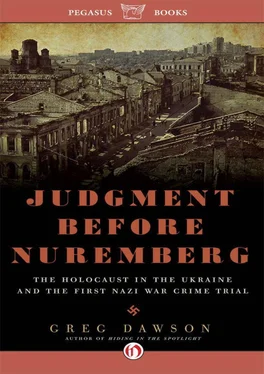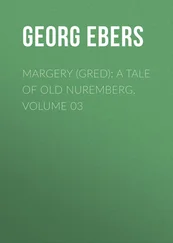I returned to Kharkov State Music Conservatory where my mother and Frina studied as children, starting at ages eight and six. A student symphony was rehearsing Prokofiev’s Third Piano Concerto, an electrifying piece full of darkness and light that only a Russian could have written. My mother recalls sitting cross-legged on the stage of the elegant concert hall as virtuosos performed only feet away, knowing at that moment, so very young, that she wanted to become a great artist too. I climbed the stairs to the balcony and took a seat at one end.
After a while, my gaze drifted from the stage to the opposite end of the balcony and a most incongruous sight. Seated in the second row up from the rail was a babushka in a bulky gray coat, a headscarf tied under her chin in classic fashion. Babushkas, or “grandmothers,” many of them war widows, are a common sight on street corners in Ukraine where they sell dried fruit, nuts, and seeds. Not in balconies of concert halls. The babushka seemed to be listening intently. From time to time she would bend forward, as if reaching into a bag.
I wondered—as Hemingway did of the frozen leopard found on Mount Kilimanjaro—what she was seeking at this altitude, in this empty balcony. Not warmth, I decided. If it was warmth she sought late on a December afternoon, surely there were other options—stores, cafes, subways—which did not entail climbing several flights of stairs. I wanted to know what had brought her there, but I would not ask and interrupt her reverie. I could only imagine.
At a distance, the babushka appeared to be a few years older than my mother, who was born in 1927. Perhaps she had fond memories of coming to the hall as a girl to hear a brother or sister perform—or perhaps a boyfriend or husband lost in the war. Perhaps she herself had been a student at the conservatory and had seen her dreams shattered, as my mother had, on June 22, 1941, when the Nazis invaded. I could only imagine. The babushka was still in the second row of the balcony, staring at the stage, when I left.
Later, downstairs, I saw her drifting silently, ghostlike, through the hallways crowded with students, much as Ukraine still moves silently, unseen, through the hallways of Holocaust history.
I had come to liberate the ghosts of Ukraine, and to face my own.
What did I know about the Holocaust, and when did I know it?
As a baby boomer growing up in the Midwest in the fifties and sixties attending public schools, I knew as much as the guy at the next desk—nothing. There was no mention of the Holocaust in our textbooks, nor do I remember any teacher telling us about it. This may seem incredible to anyone, say, thirty years old who was in middle school in 1993 when Schindler’s List debuted and the U.S. Holocaust Museum opened in Washington, D.C. That student may even have met one of the many Holocaust survivors who regularly visit schools to share their stories.
But in the context of 1961 when I was in sixth grade—the level that Holocaust education commonly begins today—the invisibility of the Holocaust was hardly surprising. In fact, any mention of it by Mr. Mize, my teacher at Rogers Elementary in Bloomington, Indiana, would have been startling—wildly out of sync with mainstream America where “Holocaust” would not be a household word for another decade.
Nineteen sixty-one was still early dawn of Holocaust awareness in America, even though sixteen years had passed since GIs entered the gates of the Dachau concentration camp populated by corpses and legions of hollow-eyed walking dead—newsreel moments imprinted indelibly on the American mind. The New York Times did not use “holocaust” to describe the murder of Jews until May 1959 in a story about dedication of the Yad Vashem memorial in Jerusalem. The first graduate seminar on the Holocaust in the U.S. was at Emory College in 1959–60. Night , Elie Wiesel’s transformative memoir, was published in the U.S. in 1960 but sold only a few copies that first year. American TV had extensive coverage of the trial of Adolf Eichmann in Israel in 1961, and Judgment at Nuremberg , starring Spencer Tracy, was released that year and won two Academy Awards.
I believe I speak for my immediate twelve-year-old peers at the time in admitting that I did not watch the Eichmann trial or go to see Judgment at Nuremberg. My favorite movie that year was The Absent-Minded Professor in which Fred MacMurray invented an anti-gravity goop called Flubber that made his old jalopy fly and let the vertically challenged slam-dunk a basketball. I saw it twice. Above all, I remember 1961 as the year Mickey Mantle and Roger Maris chased Babe Ruth’s record of sixty home runs in a season. Holocaust awareness was still a long way down the road and around the bend for my friends and me.
You might think it would have been different for me since my mother was a Holocaust survivor—the only one on the block!—but she did not share that part of her life with me and my younger brother, Bill, deciding it was “too cruel” to burden young children with such information. My information was sketchy. All I knew was that my mother had been caught up in the war and had somehow made it to America. Had we gone to synagogue and been surrounded by Jews with their own survivor stories, it would have been impossible for my mother to keep her secret. But ours was a secular home, my mother a non-observant Jew, my father a lapsed Roman Catholic from Virginia. Sunday the rabbi stayed home, and so did the Dawsons.
On the other hand, my mother made no secret of the fact that she was Russian. She was fiercely proud of her heritage, and made it known often in the kitchen by fixing borscht and other traditional meals, and she spoke Russian to me from birth. I was bilingual until age seven when I became aware of the childhood pitfalls of being “different” and begged her to stop speaking Russian to me around my friends. Unfortunately, she caved to my demand, and we now agree it was a bad decision in the long run. Fluent Russian would have satisfied my college language requirement the easy way and broadened career choices later. What was coming naturally to me in childhood, when the mind is at its ripest to absorb new languages, is nearly impossible for the ossifying adult mind short of a total immersion program. But my aversion to Russian was understandable at the time. It was the 1950s, the height of McCarthyism and the Red Scare. With people checking under their beds for Communists each night, it was not the best time for a kid in the Indiana heartland to be caught speaking the language of America’s mortal enemy.
I tell the story of how I became monolingual because it helps explain, in part, why America—Main Street and Washington—was slow to make the Holocaust a focus of our national conversation and education. “Better dead than Red!” went the McCarthyite cry. Only a decade after liberation of the death camps, America was more obsessed with the Red than the dead. In paranoia over the perceived threat from our recent ally, the actual horrific crimes of our recent enemy were, if not exactly forgotten, placed on a distant back burner of benign neglect.
Hardball geopolitics clearly was at play. The U.S. government was anxious about offending West Germany, its new ally against the evil empire in Moscow. Intense lobbying by West German government and church officials led to reduced sentences and early freedom for many officers of the Einsatzgruppen, the mobile killing squads responsible for murdering over a million Ukrainian Jews. At Nuremberg in 1948, the tribunal sentenced 14 Einsatzgruppen functionaries and field commanders to death, two to life sentences, and five to prison terms of 10 to 20 years.
Читать дальше












